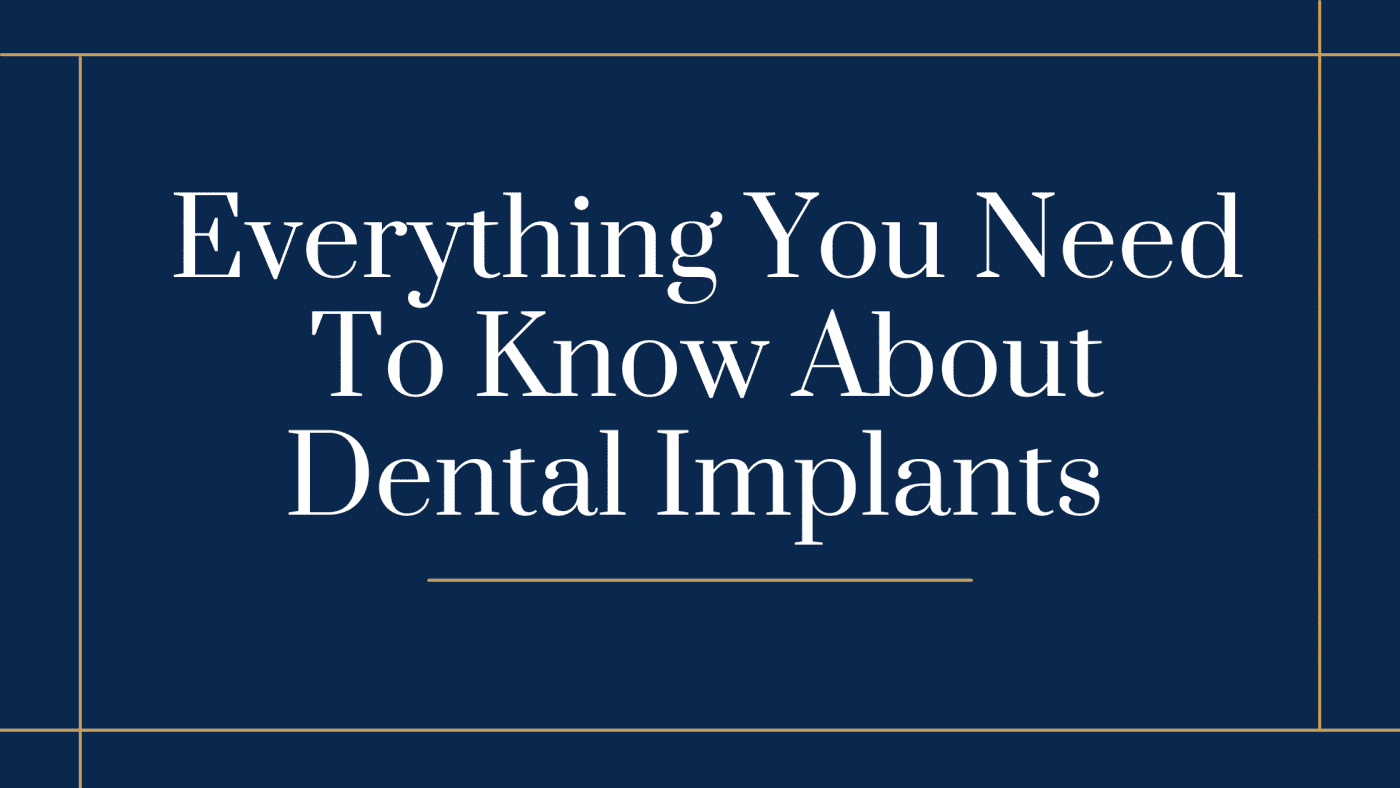What is a dental implant?
In technical terms, a dental implant is a small titanium screw that is placed into the jawbone (the titanium screw isn’t visible though). The purpose of the implant is to replace the root of a missing tooth. The bone then grows to the surface of the implant, which fuses it to the body and holds it in place. An implant can be used as an anchor for individual teeth or groups of teeth. An artificial tooth is fixed on top to replicate the look and feel of a human tooth. Dental Implants are a highly effective, and in most circumstances, long-lasting method to replace missing teeth. Dental implants are also seen to be a preferable alternative to removable dentures.
It is not essential to have dental implants, to replace missing teeth, but they are advised in some situations. Some examples are: If eating is difficult and you cannot enjoy your food, if you feel insecure when smiling and if you need to support the remaining teeth that are under greater pressure.
What is the journey and treatment of dental implants?
When it comes to dental implants, there are usually multiple steps involved.
Stage 1
A ‘consultation and treatment planning appointment’ is the first step. You may have been referred by a dentist or have self-referred to get dental implants; in any case, an initial meeting will be required. This will normally include a conversation about your dental history so that your dentist can recommend the best treatment and options for you. X-rays and jaw scans are routinely taken at this stage too. Contrastingly, a dentist may tell you that you’re not a candidate for implants at this stage.
Stage 2
The ‘dental implant placement’ is the second stage in your dental implant journey. This is where the titanium screw (dental implant) is put into your jaw. This surgery is performed under local anaesthesia and can take from as little as 45 minutes to two hours. The time is dependant on the number of implants being placed and where they are in your mouth.
Stage 3
Following the procedure, you may have some pain and discomfort. You will usually be scheduled for a two-week ‘review appointment’, where you will discuss your symptoms and have the opportunity to ask questions. Your dentist will check on the healing progress, make adjustments to the temporary prostheses, and will remove your stitches. The dentist will also go over detailed advice on how to heal your mouth during this consultation.
Stage 4
The following step is the ‘healing period’, which is when the bone will have entirely grown to the implant. Teeth can be attached at this point, but most people will choose to have a temporary restoration placed at this time instead, as it is safer; such as a crown or denture.
Stage 5
The ‘restoration period’ is the next step and it is when custom (long-lasting) restorations are placed on the implant. At this stage, your dentist will take a scan of your top and bottom teeth, as well as a record of your bite and some photographs for the laboratory to use. This is so that they can create a perfect finish for your final teeth. The restoration will be placed on the implant, typically two to three months after the healing period. When the false tooth is first placed in your mouth, it will feel odd. However, after a while, it will grow to look and feel like a natural tooth.
What is the maintenance of dental implants?
To avoid complications, like with any other treatment, you must follow adequate maintenance instructions. Dental Implants can last a long time if you care for them effectively when you first get them. Refraining from smoking (if you are a frequent smoker) and cleaning your implants routinely (with interdental brushes) are two of the most important components of dental implant maintenance. Attending regular check-ups is another way to maintain the care of the implants. Through this, a dentist can identify any possible problems and address them early on, preventing problems later on. Your implant dentist may also provide you with tailored recommendations and instructions on how to care for your implants. Above all, you must establish a routine to ensure that you follow the after-care instructions consistently.
What are the benefits of dental implants?
Many advantages come with having dental implants. Implants can help preserve jaw bone and face shape; which in time can help to decrease the appearance of ageing and can prevent future bone loss. They are also a more comfortable and low-maintenance alternative to dentures. As well as this, they appear and feel like your natural teeth, so you won’t be self-conscious when smiling. Not to mention the fact that they are also a permanent option for tooth loss and they are undetectable- so no one will even know you have them!
What is the cost of dental implants?
How much does it cost to have dental implants? The answer to this question varies. The complexity of the treatment, the number of implants that are being placed, and the type of materials that are needed for the procedure; are all factors that are considered. As each person’s dental implant treatment plan is unique, there is no fixed price. During your consultation, where your implant dentist will go over all of your options, you will usually be told the cost of your treatment.
For any additional information regarding dental implants, please view our dental implants page on our website or follow us on our social media channels.
